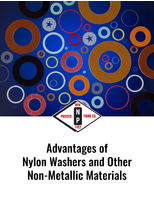Peer-Reviewed Papers detail monitoring of in-service oils.
Press Release Summary:
ASTM International compilation STP 1536, In-Service Lubricant and Machine Analysis, Diagnostics and Prognostics, includes 11 peer-reviewed papers that provide information on monitoring in-service oils. In addition to guidelines for alarm limits and trend analysis, topics cover such issues as optimizing wind turbine oil condition monitoring program, linear sweep voltammetry in condition monitoring of diesel engine oil, and FTIR lubricant condition monitoring methodology.
Original Press Release:
ASTM International Releases Publication on In-Service Lubricant and Machine Analysis, Diagnostics and Prognostics
W. CONSHOHOCKEN, Pa.-A new ASTM International compilation, STP 1536, In-Service Lubricant and Machine Analysis, Diagnostics and Prognostics, includes 11 peer-reviewed papers that provide the latest information on monitoring in-service oils. Topics cover:
STP 1536, In-Service Lubricant and Machine Analysis, Diagnostics and Prognostics, is available for $55 USD in print (158 pages; 6" x 9" soft cover; ISBN: 978-0-8031-7522-8; Stock #: STP1536) or as an e-book (ISBN: 978-0-8031-8896-9; Stock #: STP1536-EB).
To purchase ASTM publications, search by stock number on the ASTM Web site (www.astm.org), or contact ASTM Customer Relations (phone: 610-832-9585; service@astm.org).
ASTM International is one of the largest international standards development and delivery systems in the world. ASTM International meets the World Trade Organization (WTO) principles for the development of international standards: coherence, consensus, development dimension, effectiveness, impartiality, openness, relevance and transparency. ASTM standards are accepted and used in research and development, product testing, quality systems and commercial transactions.
ASTM Staff Contact: Marsha Firman, Phone: 610-832-9612; mfirman@astm.org



